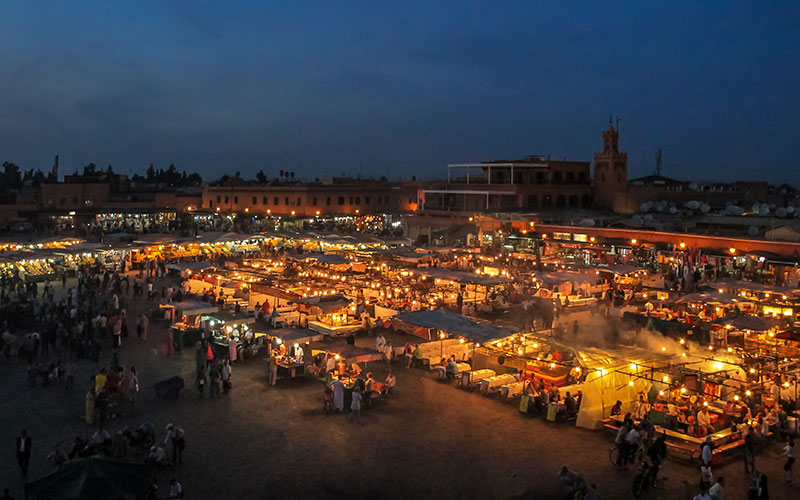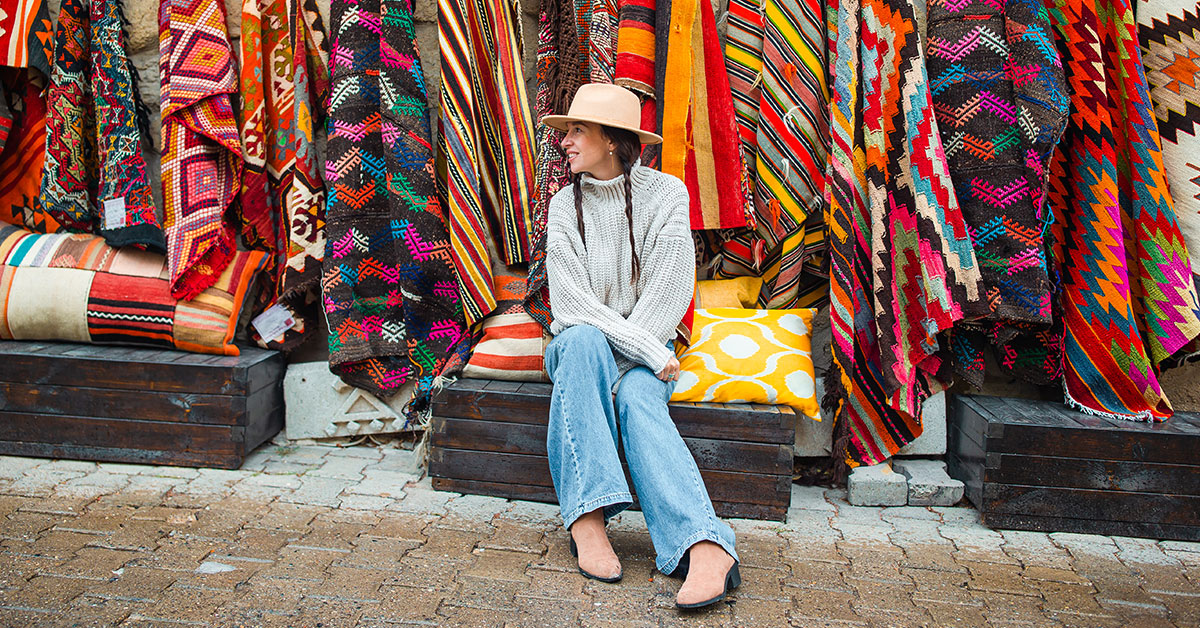20 Things To Know Before Travelling To Morocco

Morocco, a captivating tapestry of experiences, unfolds the full spectrum of real life – the exquisite, the challenging, the untamed, and the breathtakingly beautiful. For some, stepping onto Moroccan soil may initiate a culture shock, an immersive plunge into the unfamiliar. Yet, armed with awareness and understanding, this vibrant North African gem reveals itself as a country to be embraced, allowing travellers to forge connections and witness its essence through a lens that celebrates rather than seeks to alter.
1. Embark with an Unfolding Itinerary
Begin your Moroccan odyssey with a loosely woven itinerary, allowing the journey to take unexpected turns. While researching the destinations that beckon, leave space for uncertainty. While pre-booking is an option, savour the ease of reserving tours and activities upon arrival, embracing the spontaneity that Morocco encourages.
2. Navigate Urban Labyrinths with Public Grace
The intricacies of driving in cities like Casablanca and Marrakesh are best left to the locals. Embrace Morocco’s accessible public transportation, with an exceptional train network linking cities and the sleek Al Boraq, Africa’s first high-speed train, connecting Casablanca and Tangier: plan and book train and bus tickets a day or two to ensure the desired travel time.
3. Guided Wisdom for Deeper Discovery
Unravel the layers of Morocco with a knowledgeable guide who speaks your language. Seek recommendations for licensed guides from tourism offices or accommodations. In the mountains, where nature beckons, hiking guides become indispensable – a mandatory companion for ascending Mt Toubkal in the High Atlas. Consult the Bureau des Guides for expert guidance.
4. The Road’s Etiquette Dance
Master the written and unwritten rules of Moroccan roads. Drive on the right, fasten your seatbelt, and appreciate the melodic communication of car horns. Navigate the eclectic mix of people, bicycles, motorcycles, and animals. Caution reigns at night when vehicles may lack lights. Be mindful of speed limits and roundabouts, and have cash to settle fines promptly.
5. Haggling as an Art Form
Indulge in haggling, an integral part of Morocco’s shopping experience. Embrace it as a game where both buyer and seller aim for a fair price. Research, have a price in mind, or explore various options for significant purchases. In the bustling souqs, distinguish between authentic and imitation, recognizing that sometimes, securing the best price matters more than authenticity.
6. Currency Decisions: Cash or Card
Morocco’s dirham, a closed currency, remains confined within its borders. While cards find acceptance in towns and cities, rural areas still resonate with the tangible allure of cash.
7. Language Harmony as a Cultural Tapestry
Immerse yourself in Morocco’s linguistic mosaic, a blend of French, Arabic, Amazigh, and English. Don’t solely rely on English; instead, embrace the cultural richness by learning basic Arabic phrases. While apps like Google Translate offer assistance, the depth of connection grows with linguistic engagement.
8. Respecting the Trifecta: God, King, and Country
Etched on hills, the words ‘God, king, and country’ encapsulate Morocco’s ethos. Islam, as the state religion, demands reverence. Disrespecting religion or the king is illegal. Non-Muslims face restrictions at specific sites, and Fridays, a sacred day, see reduced business hours.
9. Navigating the Charms of Marrakesh
As the darling city for visitors, Marrakesh demands foresight. Pre-book tickets online for significant attractions like Jardin Majorelle and Musée Yves Saint Laurent to bypass queues. Beyond the medina’s awakening at 5 p.m., explore Gueliz and uncover hidden gems on leafy side streets.
10. Dress Codes Woven into Culture
The dress code varies, weaving a cultural tapestry. Men and women must cover their shoulders and knees to visit religious sites. In cities, modesty avoids unwanted attention. Nightlife offers flexibility, but rural areas call for a more conservative approach. At the beach, embrace casual wear, pack comfortable footwear, and keep a scarf for shoulder coverage.
11. Politeness in Photo Moments
Capture moments with courtesy; always seek permission before photographing people. Exercise caution around military zones, avoid photographing government buildings, and adhere to drone restrictions.
12. Mastering the Art of Detachment
Navigate the labyrinth of persistent sellers with quiet resolve. Politeness isn’t optional; often, a lack of reaction suffices. In some areas, you may face comments or inappropriate behavior; shouting ‘Police!’ can deter unwanted attention, revealing the undercover tourist police in Marrakesh.
13. Sipping from the Wells of Caution: Alcohol in Morocco
While Islamic law prohibits alcohol, it is discreet in licensed wine shops and international grocery stores. Not all establishments serve alcohol, so discernment in your choices is wise.
14. Eating Traditionally with the Right Hand
Moroccan cuisine, including tagines and grilled fish, is traditionally eaten with bread using the right hand. The left hand, associated with impurity, is reserved for personal matters. Adapt to local customs and relish the gastronomic delights with cultural respect.
15. Embracing the Enigma of Lost Paths
Getting lost is an intrinsic joy of exploring Morocco, with unmarked roads, souq alleys, and areas of no cell phone reception. Relax in the mystery, but remain aware of your surroundings, seeking help when needed. In medinas, decipher street signs – hexagons mark dead ends, while squares indicate through streets.
16. Safeguarding Your Sips: Avoiding Tap Water
Morocco’s tap water holds potential hazards. Carry a filtered water bottle to avoid plastic waste and safeguard your well-being.
17. Tissue Tales in Public Spaces
Some public toilets may lack paper; a pack of tissues and sanitizing gel or wipes becomes a reliable travel companion.
18. Harmony with Street Companions
Street animals, omnipresent, form an integral part of Morocco’s community. Refrain from feeding them at your table, but discreetly share leftovers elsewhere. Explore whether rescue centers are established in the communities you visit, extending support through donations or volunteering.
19. Riad Reverie
Indulge in the enchantment of a riad, a traditional Moroccan dwelling with an interior courtyard. Reviews guide the choice of these sanctuaries, promising a blend of architectural splendour and tranquillity.
20. Symphony of Climate Zones
Morocco, a geographical poet, orchestrates weather symphonies. Coastal breezes, mountain chills, and desert whispers converge. Pack thoughtfully to dance with these climatic nuances, ensuring a harmonious journey across the Moroccan tableau that transcends a mere visit and becomes an immersive cultural experience.






